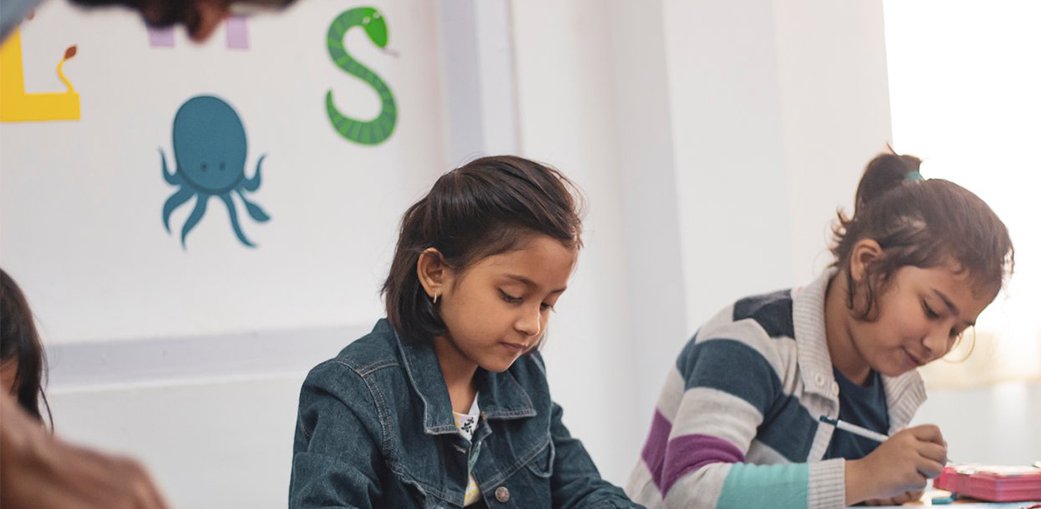
Individualized Education Plans are documents that help direct each child’s unique education experience. The document is an agreement between the placing school district, Education Alternatives, and the parent, and it outlines the specific services the child will receive at EA. The document is developed by the IEP team, who is made up of the child’s teacher, the building’s principal, the special education director, and any other educators who can help develop a specific IEP for the child.
We believe that every child has the right to learn what their peers are learning, graduate from high school, and go on to live a successful adult life. Some of the goals that families may have for their child could include higher education, entering the workforce, or navigating personal relationships.
What Qualifies a Child for an IEP?
In the United States, our Department of Education passed the Individuals with Disabilities Education Act in 1975. Since then, IEPs have been utilized in schools to help children who learn differently to receive the same education as their peers. There are 13 types of learning needs and disabilities that qualify students for IEPs, which are:
- Autism spectrum disorder
- Deaf-blindness
- Deafness
- Emotional disturbance, including anxiety, bipolar, schizophrenia, obsessive-compulsive disorder, and depression
- Hearing impairment
- Intellectual disability, such as Down syndrome
- Other health impairments, such as ADHD
- Orthopedic impairment, which includes a physical lack of function
- Specific learning disabilities, like dyslexia
- Speech or language impairment
- Traumatic brain injury
- Visual impairment and blindness
- Multiple disabilities, which can be a combination of any of the other 12 types of learning needs
What Are the Available Types of IEP Accommodations?
When you think about the types of IEP accommodations, it’s important to remember that IEPs are not meant to alter the content of a child’s education. With an IEP, a child will still learn the same material as their peers. However, how the child learns the information will change to remove their barrier to learning.
There are four basic types of IEP accommodations. These include:
- Presentation
- Response
- Setting
- Timing and scheduling
Let’s take a look at each type of IEP below.
Presentation
This changes how the information is presented to the student. For example, some students may struggle with reading, making timed tests difficult. In such a case, the accommodation may allow the student to complete their test with a teacher who will read each question aloud to him or her.
Response
This alters how the student completes assignments and testing. A child who is speech impaired may be allowed to complete a written report instead of presenting orally in front of the class.
Setting
Some students struggle to learn in a traditional classroom setting. A student with ADHD may be easily distracted by other students, noises, or lights. In this case, he or she may be given the opportunity to complete tests and other assignments in a different room.
Timing and Scheduling
For some students, it can be difficult to complete homework and tests in the allotted time frame. For these students, it may be beneficial to give them extended deadlines on projects or additional time to complete tests.
How Can Education Alternatives Help?
At EA, we have a Day Treatment Program that focuses on meeting the needs of students with emotional and behavioral needs. In addition to offering various types of IEP accommodations, we also provide our students with mental health counseling services.
Our trained counselors and educators value each student’s mental health, education, and future. They work hard to give every student a fair opportunity to succeed in life.
Contact Us
If you have further questions about our services and how we can help students with special needs, please reach out to us by completing our contact form. You can also email us at enrollment@easchools.org or call us at (216) 332-9360.

